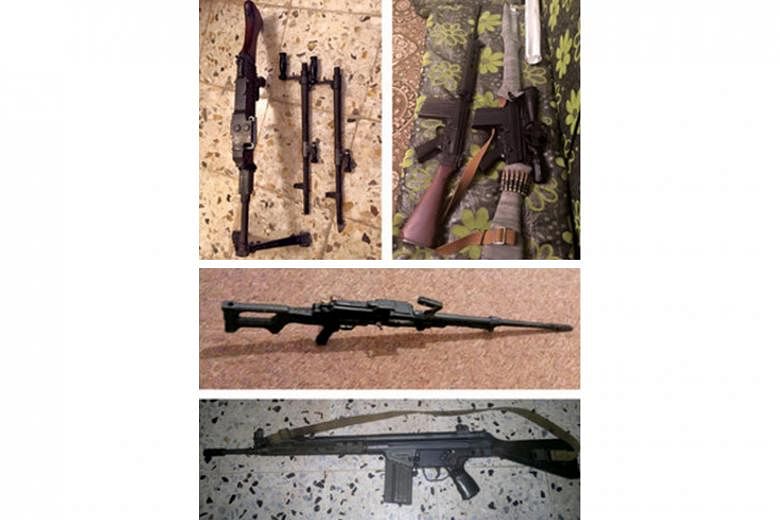NEW YORK • A terrorist hoping to buy an anti-aircraft weapon has, in recent years, needed to look no further than Facebook, which has been hosting sprawling online bazaars offering weapons ranging from handguns to guided missiles.
The Facebook posts suggest evidence of large-scale efforts to sell military weapons coveted by terrorists and militants.
The weapons include many distributed by the United States to security forces and their proxies in the Middle East.
These online bazaars, which violate Facebook's recent ban on the private sales of weapons, have been appearing in regions where the Islamic State in Iraq and Syria (ISIS) has its strongest presence.
This week, after The New York Times provided Facebook with seven examples of suspicious groups, the company shut down six of them.
The findings were based on a study by private consultancy Armament Research Services (Ares) about arms trafficking on social media in Libya, along with reporting by The Times on similar trafficking in Syria, Iraq and Yemen.
Many sales are arranged after Facebook users post photographs in closed and secret groups.
The posts act roughly like digital classified ads on weapons-specific boards.
Among the weapons displayed have been heavy machine guns on mounts that are designed for anti-aircraft roles and that can be bolted to pickup trucks, and more sophisticated and menacing systems, including guided anti-tank missiles and an early generation of shoulder-fired, heat-seeking anti-aircraft missiles.
The report documented 97 attempts at unregulated transfers of missiles, heavy machine guns, grenade launchers, rockets and anti-materiel rifles, which are used to disable military equipment rather than personnel, through several Libyan Facebook groups since September 2014.
Mr Nic Jenzen-Jones, the director of Ares and an author of the report, said machine guns and missiles form a small fraction of the apparent arms trafficking on Facebook and other social media apps.
Examinations by The Times of Facebook groups in Libya dedicated to arms sales showed that sellers sought customers for a much larger assortment of handguns and infantry weapons.
The rifles have predominantly been Kalashnikov assault rifles, which are used by many militants in the region.
Items offered for sale also included ammunition, bulletproof plates for flak jackets, rifle scopes and hand grenades.
The use of social media for arms sales is relatively new to Libya.
Until a Western-backed uprising against Muammar Gaddafi in 2011, which ended in his death at the hands of an armed mob, the country had a tightly restricted arms market and limited Internet access.
But similar markets exist in other countries plagued in recent years by conflict, militant groups and terrorism, including in Iraq, Syria and Yemen.
Online arms trafficking of this magnitude is an "eye-opener", said Mr Nicolas Florquin, research coordinator for the Small Arms Survey, the Geneva-based international research centre that underwrote the Ares study.
Without addressing any particular social-media company directly, Mr Florquin added: "Obviously, there has to be more attention to monitoring and controlling it."
NEW YORK TIMES

